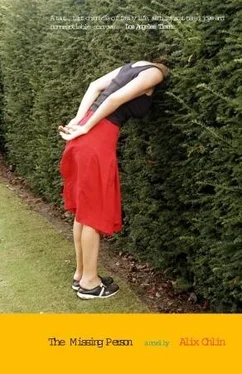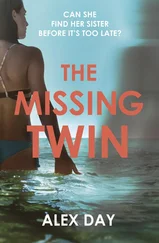“You need a Georgia,” he’d said. “You need a cult of personality.”
“Greeting cards in the making,” I’d answered lazily, trying not to fall asleep. “Coffee mugs and calendars.” We were in bed in his apartment, on a quiet Saturday evening, and Marianna was at a conference in Denmark. Those were the most peaceful nights I ever spent in New York: half-asleep and half-awake, books on the blankets, the noise of the city far away below us.
As I looked back on it, that conversation seemed a long way from staring at mediocre paintings in Albuquerque, and I asked myself how I’d gotten from one place to the other. I’d started studying women artists in college, once I’d gotten through the basics of art history and noticed how male-dominated it was. I thought I could understand their anger and defiance; by dealing boldly with their own bodies, they were taking control, asserting their presence. For a while I adopted an angry attitude myself, toward men and especially my father, whose quiet conventionality I saw as a patriarchal crime.
“I have cramps, Dad!” I’d make sure to tell him. “I’m bleeding. ” I wanted to make him uncomfortable, which was never hard. He’d offer me an aspirin and quickly exit the room. During these years we had few easy conversations, and only when I was starting grad school did I stop attacking him — too busy, I guess, defending myself against the onslaught of life in New York. We’d begun, then, to talk about other things, news, weather, anything, like ordinary adults; but he died before things could get fully normal again.
In the library I went downstairs and sat at a computer terminal, hesitating only a moment before I started to write.
Dear Michael,
How’s France? I have exciting news. I believe I have stumbled upon exactly the necessary material for my project. Thank you so much for pushing me into more active research. There is a set of paintings here that I believe to be quite extraordinary, and I feel with them the strong personal engagement you always said was required for the best scholarship. I have come across a female painter who deals with issues of the body with a remarkable mixture of formal skill and ideological heft. Her name is Eva Kent, and I’m researching her other work right now. I think you’ll be pleased. Thoughts on how I should proceed?
Cheers,
Lynn
Whether I really thought the paintings were extraordinary was beside the point; I wanted Michael to think so. I knew him well enough to tell him what he needed to hear.
I made a photocopy of the picture and left the library. It was almost noon, and at the coffee shop across the street I ordered a chicken burrito with green chile and listened to the fresh-faced students at the table next to mine debate the various merits, as hangover remedies, of bacon and eggs, French fries, and Tabasco sauce. On the other side of me a pointyfaced girl in a peasant skirt was writing furiously in a cloth-bound journal.
Outside, traffic moved sluggishly from block to block and light to light. A woman with a baby strapped to her chest was jaywalking in between the cars, lightly brushing their hoods and trunks and fenders as she passed; it looked like some ritual benediction, her head canted to one side and a dreamy laxness in her gait. Traffic was slow but it had not in fact stopped, and people were honking. Still, she kept to her serene, peculiar route, and when she got to my side of the street I realized it was Irina.
I ran outside and caught her by her arm, and she said, “Sister of Wylie!”
“Hi,” I said.
“I am so sorry to tell you I have forgotten your name,” she said.
“That’s okay. It’s Lynn. I’m having lunch, would you like to join me?”
“But I couldn’t impose.”
“Please. It’s my treat.”
“I would like to, then.”
Inside, she sat down at my table and immediately started nursing the baby, who pulled at her nipple with loud, aggravated sucking sounds. The hungover students, repulsed, cleared their trays in a hurry. I ordered a cheeseburger and a Coke, at her request, and brought them to the table.
“So, Irina. How’s everything going? Have you seen Wylie?”
She shook her head and looked as if she were about to say more, but then became distracted by the cheeseburger. She ate faster than anybody I’d ever seen. Her round, pretty face shone with sweat and happiness, and she kept nodding rhythmically as she chewed. In between bites she licked the juice from all her fingers in turn. The baby also seemed happier, sucking quietly, one little hand curving around her exposed breast. Irina put her hand on the back of the baby’s head. I finished the rest of my burrito and asked if she wanted dessert.
“Oh, no thank you! But I would happily eat one of those burritos.”
So I watched her demolish a whole other plate of food, nodding and smiling at me all the while. Her appetite was both impressive and off-putting, like an Olympic event you weren’t sure should actually be a sport. The baby went to sleep, and Irina tucked her breast back into her dress and kept eating. At the end of the burrito I held my breath, but she just picked up the Coke and leaned back, sipping on it with a contented air.
“Ever since I had my baby I can’t stop eating,” she said. “I think I am afraid she won’t be nourished enough.”
“She looks pretty happy,” I said. In fact the baby’s head was lolling out of the sling, heavy-lidded and drowsing, silvery strands of drool gathering at the corners of her mouth and fluttering gently as she breathed.
“Yes,” Irina said, and belched. A few strands of her brown hair were stuck to her cheeks with sweat. “You know, when I was a little girl, I never knew there were things like this in the world, like cheeseburgers and burritos. No one ever told me that these things existed. But I think that somehow I knew. Because how else could I have come here, on a sunny day in June, to be sitting with you and eating such a wonderful lunch?”
I laughed. “That’s a good question.”
“I think so. Thank you for the food.”
I told her she was welcome, and asked how she’d gotten to Albuquerque in the first place. I’d assumed she was a student, but then she told me her entire life story, slowly, while sipping her first Coke and then another. She’d grown up in Germany, then France, then Ireland. Her father was a doctor and her mother an artist, and they’d fled Prague in 1968, swearing they’d never go back. Which they didn’t; but neither did they settle anywhere else, and instead they kept shuttling their growing family — Irina was the youngest by far of six and, she suspected, an accident — from country to country, language to language. They turned whatever city they were inhabiting into a little country of their own devising, speaking their own private language, with layers of jokes and family references that grew over the years into a kind of insular dialect. Irina’s older siblings eventually rebelled. One married an Irish woman and settled in Dublin, refusing to speak even a word of Czech; his children were named Patrick and Siobhan. Another brother went back to the Czech Republic and swore that it was the only place he could ever live, though he’d never lived there before.
When Irina was eighteen, she planned on studying accounting at a local university. But one day she was sitting with her parents in London, where they now lived, and watching the BBC, a nature special called Deserts of the World.
The camera traveled to Africa, then to Asia, and finally to the American Southwest. It flew over the Chiricahua Mountains of Arizona like a bird. It blew, seemingly on the wind, to White Sands, New Mexico, over miles of glistening white dunes, shifting and forming, the sunset pink and explosive. “What. . is. . this. . place?” Irina said to herself — and she whispered it to me across the table, slow and sibilant, hissing like a fanatic sharing a secret code. “And so I came here,” she said.
Читать дальше












